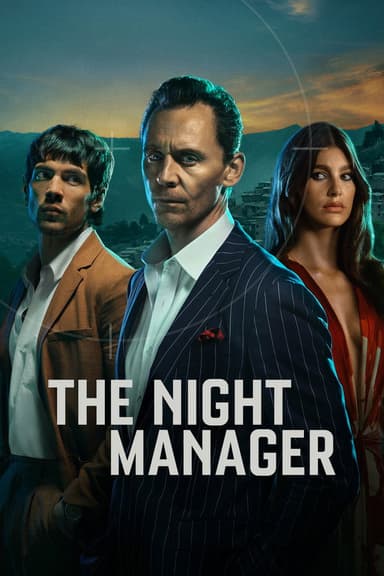
The Three Hostages
1952 • Drama
An adaptation of the novel The Three Hostages by John Buchan.
Why you should read the novel
If you’re captivated by The Three Hostages TV series, the original novel by John Buchan offers a far richer and more intricate experience. The book plunges readers deeper into Richard Hannay’s world, capturing the psychological intensity, atmospheric detail, and gripping suspense that made Buchan a master of the genre. Subtle characterizations and immersive prose combine to create a vivid journey you simply can't get from the screen adaptation alone.
By reading John Buchan’s The Three Hostages, you’ll gain unique insights and details omitted from the TV series. Buchan crafts clever puzzles, layered motivation, and complex villains that challenge Hannay’s intellect and bravery, making every page a cerebral adventure. The unique perspective of the 1920s post-war era is rendered authentically through Buchan’s literary style, sweeping readers into a sophisticated tale of espionage and danger.
Rediscover the power of classic literary thrillers by choosing the novel over the adaptation. Only through the written word can you appreciate Buchan’s intelligence, the subtleties of his plot, and the full depth of his characters. Dive into The Three Hostages book and enjoy the story as it was meant to be experienced: suspenseful, richly detailed, and remarkably original.
Adaptation differences
There are significant differences between the 1952 TV adaptation of The Three Hostages and John Buchan’s original novel. The series compresses complex subplots and character backgrounds to fit the limited runtime, reducing the depth of psychological intrigue that defines the book. Key characters and their relationships are simplified or omitted altogether, which leads to a less nuanced portrayal of Hannay’s journey and the intricate web of threats he faces.
John Buchan’s novel is celebrated for its subtle tension and intellectual puzzles, but the TV series often streamlines or alters these elements to maintain visual pace. Essential motifs—like hypnosis and post-war trauma—are explored in far greater detail in the novel, giving readers a deeper understanding of both the antagonist’s motivations and Hannay’s personal struggles. The show’s brisk adaptation inevitably glosses over these themes, making the original book a richer experience for those craving depth and authenticity.
The tone and atmosphere also differ markedly between the book and the adaptation. Buchan’s prose crafts a brooding, evocative setting that immerses readers in 1920s London and the Scottish Highlands, elements that are only briefly depicted in the series. The internal monologues and psychological complexity in the book allow readers to fully inhabit Hannay’s thoughts, something the adaptation cannot replicate on screen.
Finally, certain plot twists and character decisions have been altered or left out in the TV adaptation for the sake of pacing and clarity. The result is an abridged version of Buchan’s narrative, lacking the intricate suspense and sophisticated plotting that make the original Three Hostages novel so enduring. For the full impact of Hannay’s adventure, and to appreciate Buchan’s storytelling genius, reading the novel is essential.
The Three Hostages inspired from
The Three Hostages
by John Buchan



